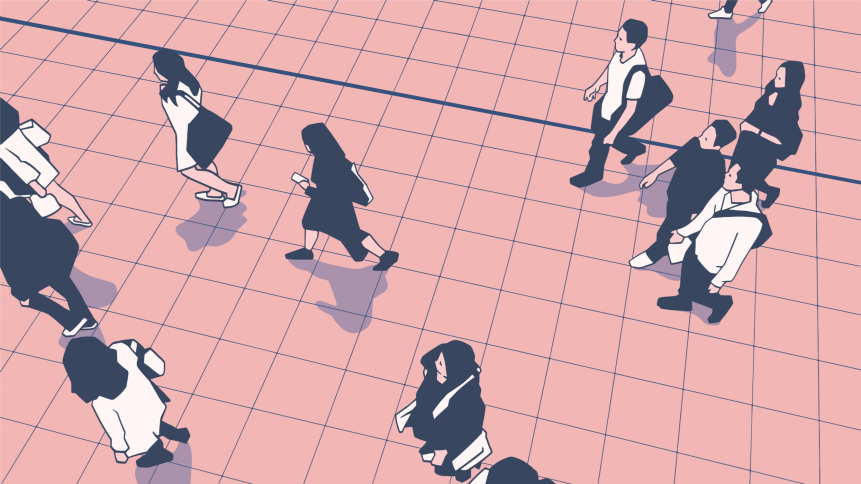Microsoft Teams – should you consider a virtual commute?

- The software’s host of new features focus on mental health with meditation breaks and work habits
- Microsoft Teams has been the company’s fastest-growing business app ever
- Microsoft has partnered with Headspace to bring a curated set of mindfulness experiences and science-backed meditations into Teams
Following a stringent lockdown, the “new norm” has quickly shifted to a new reality with many of us working from home and workdays blending seamlessly into everyday life.
While some are now back in their offices milling away, millions of employees are no longer taking their cars or riding the subway for their morning commute.
According to Microsoft Teams’ chief marketing officer, Chris Capossela, pandemic-related burnout along with separating work and personal life has become a common issue among corporate customers.
Companies initially worried about employees having the right technology to work from home, but are now more focused on the emotional well-being and mental health of their employees.
“The thing we didn’t predict that we’ve learned is now at the top of customers’ minds is really the well-being of their employees,” Capossela told Bloomberg.
This has prompted Microsoft to develop their Teams software to now offer a “virtual commute” feature that reminds users about the end of the workday, before suggesting tasks that could help workers wind down.
“Now it’s getting to be much more about ‘hey, how do I know if an employee is burned out, how do I know how they are doing – if they are working too hard?’ All of the things around the emotional well-being or the mental health of employees has risen to the top faster in a way we didn’t really predict,” added Capossela.
In light of the introduction of the new features, Microsoft Research studies have suggested that reflection during that time increases employee’s productivity by 12-15%.
The new feature claims to help break up a worker’s day to create some mental space before other obligations such as kids’ homework, dinner and laundry begin to start rolling in.
This is done by Teams prompting users to list tasks as either completed or added to tomorrow’s to-do list while asking workers to rate their day and then suggesting guided meditation.
“Think about what we were going into in the day and think about clearing up what we are coming out of in a day. And so this virtual commute experience allows you to take a step back, again going into and coming out of your day to just organize your thoughts and to make sure you’re really processing, doing some pre- and post-processing of your work. It turns out the research shows us that can be very helpful,” said Microsoft 365 corporate vice president, Jared Spataro.
Long before the pandemic and lockdowns had kicked in, Microsoft Teams has been the company’s fastest-growing business app ever since 2018, hitting 7.5 million daily active users.
In conjunction with the new virtual assistant feature, Microsoft has also separately partnered with Headspace to bring a curated set of mindfulness experiences and science-backed meditations into Teams.
Microsoft sees them as tools to be used to help employees focus before a big presentation or to de-stress after a long and hard day.
“You can either schedule a meditation as part of your virtual commute or as part of a mindfulness break throughout the day,” said Spataro, before adding, “We think that’s going to be really powerful… After just four sessions using the Headspace app, one group of health care professionals experienced a reduction of burnout of 14%. And another study with a broader population: 30 days of Headspace resulted in a 32% decrease in stress. So there are clear indications that these types of things can really make a big difference.”
Remote working has been a bane to many companies during the pandemic, and while nobody likes to spend valuable time in traffic jams, the lockdown also yanked away a lot of the human facets out of work.
Microsoft’s social responsibility and initiative in providing corporate customers with a new set of emotionally intelligent tools will be a refreshing relief for many employees facing the ongoing pandemic.










